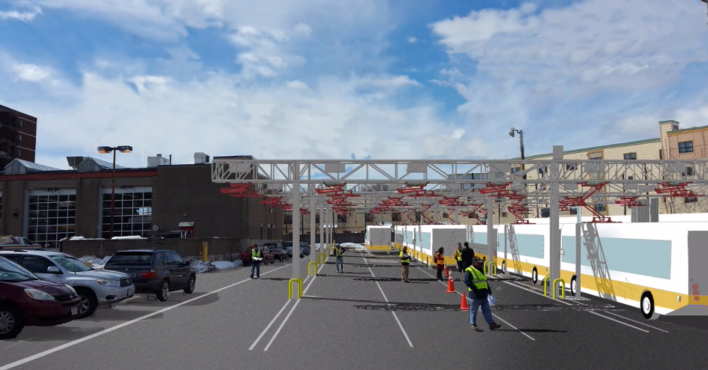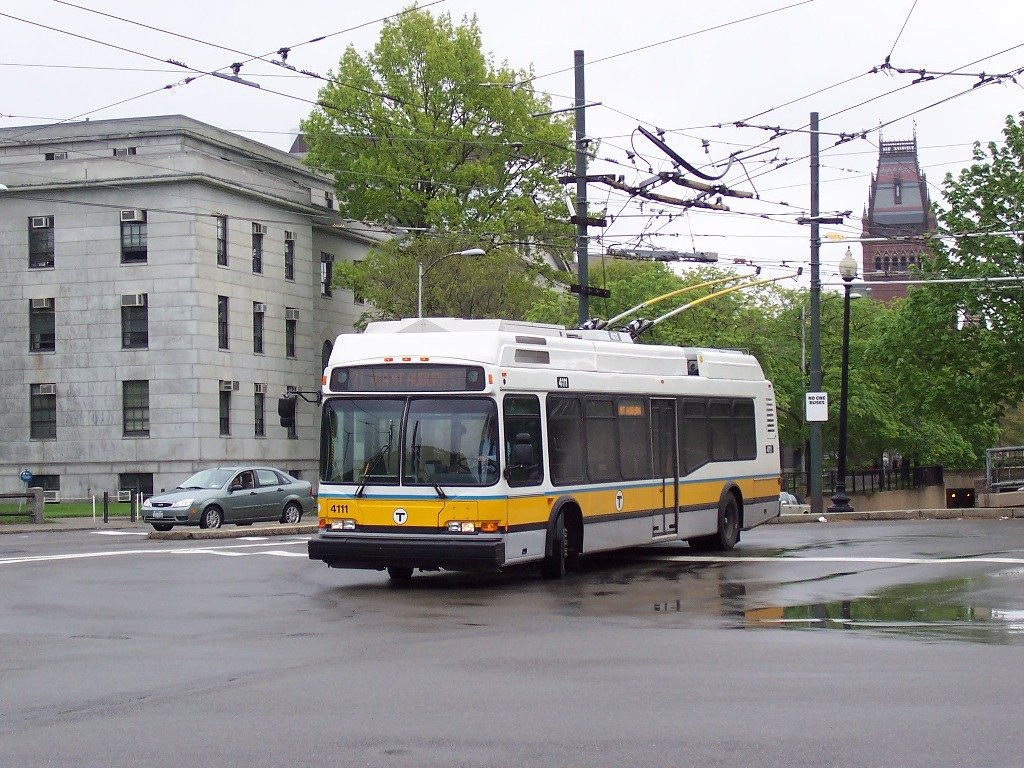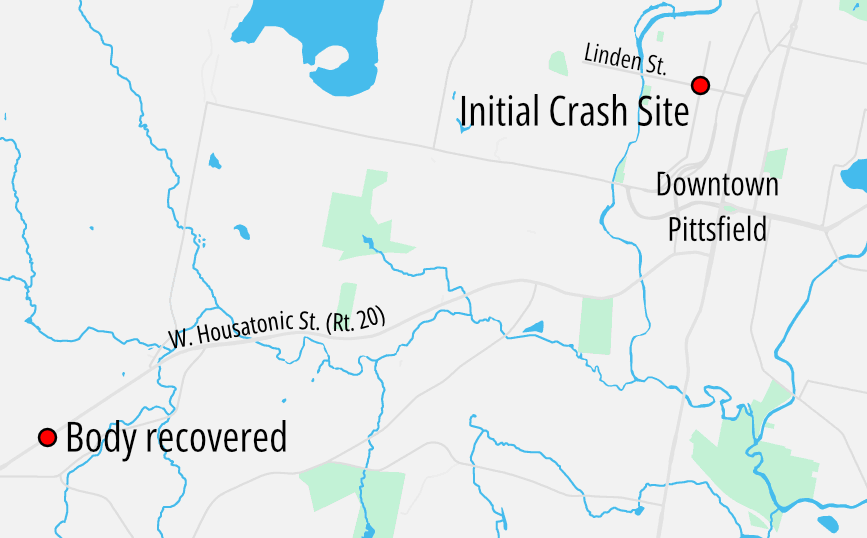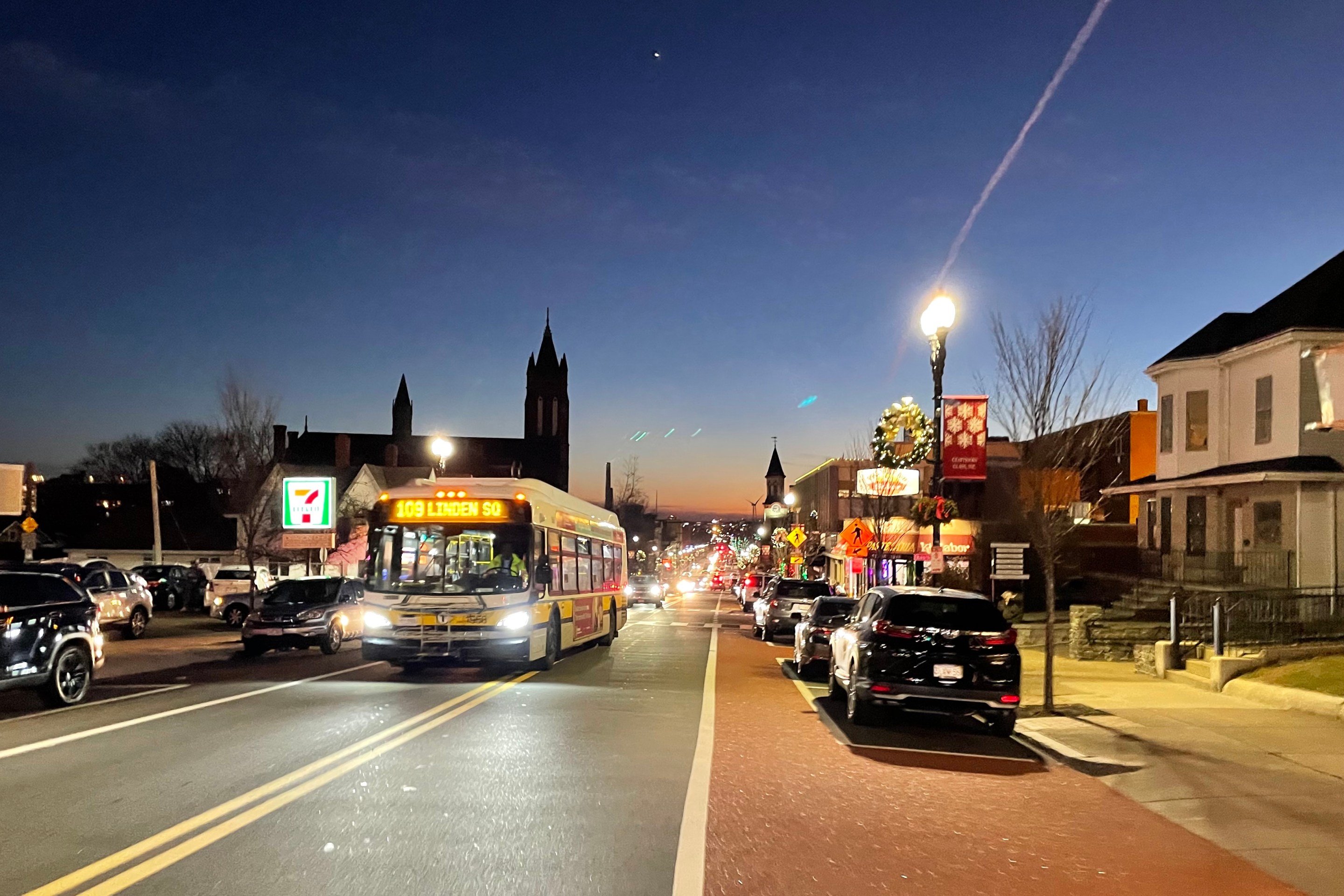After over 80 years of service, the T's all-electric trolleybus routes that operate in Cambridge, Belmont, and Watertown will be permanently unplugged next month, and its vehicles will be sold for scrap.
The immediate cause for the service's demise are planned roadway projects along the trolleybus routes that will interrupt power on key segments of the overhead wires that power the buses.
But the interruption is also an opportunity for the T to implement broader efforts to renovate its aging bus garages and begin transitioning its entire bus fleet to run on battery-powered engines.
Within the next few months, the T plans to start a renovation project on the North Cambridge bus garage where its trolleybuses currently spend the nights so that it can accommodate and recharge a new fleet of battery-powered buses.
In the meantime, the T will use diesel-fueled buses to replace the trolleybuses that currently serve bus routes 71 and 73.
The decision to junk the T's small fleet of zero-emission trolleybuses has raised eyebrows among environmentalists and transit advocates. The state has a goal to achieve net-zero emissions by 2050, and some organizations would like the T to eliminate fossil fuels from its vehicles by the end of this decade.
At an online public hearing on the proposed bus garage project on Tuesday evening, MBTA Director of Bus Modernization Scott Hamwey promised that "our priority now is to advance this (garage project) as quickly as we can, so we can get electric service back out on these two routes within two years."
Tuesday's hearing also outlined the T's broader strategy to begin converting the rest of its bus fleet to battery-powered engines over the next two decades.
Earlier this week, the T also held a ceremonial groundbreaking for its new Quincy bus garage, which is projected to open in 2024 and would have capacity for 120 additional battery-electric buses. Another new bus garage being planned to replace the T's Arborway facility would support around 200 battery-powered buses and open by the end of 2027.
The T's commitment to battery-powered buses and bus facilities represents a relatively recent shift in strategy. As recently as September 2020, in a public presentation about trial runs of 5 battery-powered buses on the Silver Line, T officials said that the technology was "not yet mature enough" for widespread use: the buses' operating range was too short, and the time necessary to recharge was too long.
In the past year and a half, though, battery technology has improved. The T has also settled on a promising solution to help extend the range of electric bus batteries; ironically, though, it's a compromise that adds fossil fuels back into the mix.
Because the biggest range issues occur during cold weather, when heating demand drains batteries, the T plans to equip its new battery-electric buses with auxiliary diesel-powered heating systems. The T's plans for the new North Cambridge garage would also build a new diesel fuel storage tank to refuel those heaters.
During Tuesday's public hearing, T officials sometimes struggled to finesse the contradictions of new "electric" buses that would include diesel-powered furnaces on board.
Bill Wolfgang, the T's Director of Vehicle Engineering, asserted that the new buses would "have no tailpipe emissions" and would "have a fully electric heating system, supplemented on the coldest days with an efficient diesel heater, eliminating our vehicle range anxiety."
Even with those heaters in use during cold weather, the T thinks that the new buses will still result in a net reduction in diesel fuel use.
Scott Hamwey, the T's Director of Bus Modernization, said that while the existing trolleybus fleet is already fully electrified (including electric heating systems), issues with the overhead wires or roadway detours already force the T to fill in service with diesel-powered buses on the 71 and 73.
"We frequently – more that 15 percent of the time – have to pull the trolleybuses and replace them with diesel bus service whenever there's any unplanned issue with the overhead catenary system," said Hamwey. "We've never really operated this as a fully electric service."
The T wants to begin renovations on the North Cambridge garage, which currently houses the 35 electric trolleybuses that serve the 71 and 73 via the Harvard bus tunnel, in early 2023. The project would replace the bus yard's overhead wires with a new charging gantry (pictured below), and reopen with an all-new fleet of battery-electric buses in early 2024.







